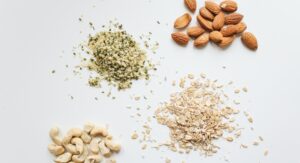We are all designed to have 2-3 bowel movements daily. Yup, each and every day. Some people put a lot of effort into getting one daily bowel movement. Others are lucky if they go every few days, or even less often. In addition to resulting in some serious health consequences, constipation often causes uncomfortable bloating, irritability and general misery. In addition, it is frequently linked to skin issues, headaches and allergies.
So, what’s a healthy bowel movement you ask? Well, to start, evacuation should take less than 1 minute and occur without straining, cramping or difficulty. It should feel complete and require minimal clean up. Healthy stool is medium brown, smooth and formed like a log. Sorry for the visual! But if you’ve ever sat on the toilet long enough to read your email and all you produced were a handful of little ball poops, you fully aware that quickly pushing out a lovely long brown snake would’ve been much more satisfying.

The majority of our patients who come in for colon hydrotherapy suffer from constipation (though that’s far from the only benefit of CHT). In addition to relieving their symptoms and removing the waste that has built up with colonics, we work with each patient to identify the underlying cause of their constipation. Irrigating the colon is a fantastic way to rid the body of toxins, old fecal matter and cleanse the entire bodily system. But of course, we want to help you prevent the build of waste from returning. How do we do that?
First, we address diet and dehydration. If someone isn’t consuming enough fiber or they aren’t drinking enough water, then some simple changes in their daily routine will often do the trick.
But, what about the individual who is eating veggies and drinking water all day but is still constipated, bloated and and uncomfortable? This is when we dig a little deeper. Is it an imbalance of microorganisms in their digestive tract? Are they lacking certain minerals? Do they have hypothyroidism that has gone undetected? Accurately diagnosing hypothyroidism is not as straightforward as looking at a few lab numbers. Is there a gut infection such as SIBO (Small Intestinal Bacterial Overgrowth)? To answer these questions we may recommend testing or certain supplements and of course, we ask a lot of questions. There is no such thing as TMI in our world.
Regardless of the root cause of constipation, there are some easy things you can do immediately to relieve your symptoms and get that waste out!
One.
Upon waking, drink 16oz of room temperature water (it’s best to put the glass on your nightstand the night before). Water is crucial to the digestive process and you’ve been without it for at least 8 hours. If just the water isn’t enough to get you moving consider adding a big squeeze of lemon. The lemon will alert your body that there is food coming, tell the liver to produce bile and tell the digestive process to begin.
Two.

15 minutes after drinking the water, eat a crunchy veggie or fruit: small apple, celery stick, carrot stick, ½ of a large bell pepper, ½ of a cucumber. Chew each bite well. Chewing promotes peristalsis- the movement of the gut that pushes stool along. Raw vegetables and fruits are packed with nutrients and enzymes that facilitate digestion and gut healing. They also provide a little sugar to the brain to help wake you up and give your brain energy.
Three.
20 min after eating a crunchy item, eat a hearty breakfast: meat, fat and veggies (omelets, soup, eggs with sautéed spinach and avocado, organic sausage with sliced tomatoes and olives, etc). A hearty breakfast with fiber will help manage blood sugar, keep your energy up throughout the morning and stimulate your bowels. Make sure you chew your meals well.
Four.
30-45 minutes after each meal sit on the toilet for no more than 5 minutes. Push gently but do not strain. This reprograms your brain to start peristalsis in your large intestine and give you the ‘urge’ after eating to have a bowel movement. It may take a few weeks for you to start seeing results but stick with it. Using a squatty potty will help because it elevates your knees and opens the colon. A squatty potty is simply a small stepping stool that is easily purchased online.

Five.
Never ignore the urge to have a bowel movement. People who work in jobs who do not have easy access to bathrooms such as teachers, police officers, truck drivers, surgeons, nurses and construction workers are more prone to chronic constipation because they’ve had to ignore the urge to go and delay bowel movements until they can get to a bathroom. Eventually, you will stop getting the urge if you don’t listen to it immediately. Try your best to find time to sit on the toilet at regular times each day.
Six.
Chew each bite of food 25+ times before swallowing. When we chew, the digestive enzymes in our saliva begin to breakdown the food in our mouths, which reduces the burden for the stomach. In addition, chewing sends a message for the release of digestive enzymes, bile and stomach acid in our stomach. These help your stomach to breakdown food more completely so it may be better absorbed and less likely to contribute to leaky gut and bloating in your intestines. Think of your mouth as the very first organ in your digestive tract. So even if you are only consuming a smoothie or a creamy soup, chew each mouthful well before swallowing.
Seven.

Walk often throughout the day, especially after eating. A 5-15 minute walk 1-3 times / day can do wonders for your digestive tract. The act of walking opens up the pelvic area and creates movement in the intestines.
Eight.
Avoid cheese, rice, large servings of meat and bananas. Each of these is constipating. If you choose to eat them, try to combine them with water and green leafy vegetables and never eat them in the same meal.
Nine.
Eat fiber daily. Great sources: beans, lentils, avocados, quinoa, vegetables, dates, figs, and beets. It’s important to note that fiber comes from plant foods and is not found in animal products; it is the part of the plant food that your body cannot digest. Other macronutrients – fats, carbohydrates and proteins – your body will break down and be absorbed through your intestines. Fiber, however, isn’t digested and passes relatively intact through your stomach, small intestine, colon and into the toilet. It aids mobility and adds bulk to your stool.
Ten.

Drink a large glass of water 15 minutes before eating and at least 1 large glass between each meal. Or, set an alarm on your phone to drink and refill a large glass water bottle (16-32oz) each day. This will help you to get in the habit of drinking enough water. If you lack thirst, try adding a pinch of Himalayan sea salt to your water.
If you have a history of constipation, consider getting on the table of a trained colon hydrotherapist. The slow and gentle inflow of water will help break up what’s lodged in your colon and move it on out! You can check out our online scheduler here or call the office at 843-242-0646.












